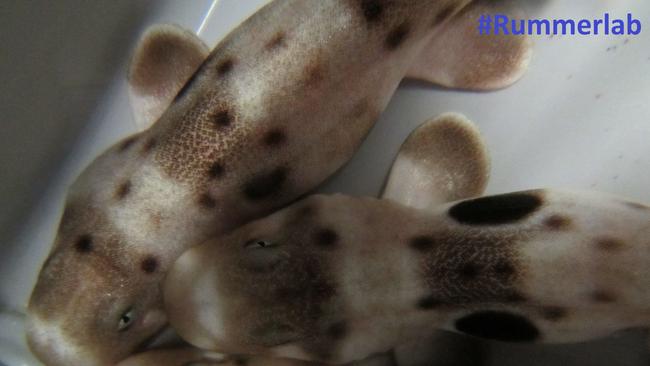Native sharks under threat from global warming
JCU scientists studying the effect of global warming on the Great Barrier Reef have discovered native sharks are facing an uncertain future

Townsville
Don't miss out on the headlines from Townsville. Followed categories will be added to My News.
- Close call as croc lunges at Townsville angler
- Mosquitoes on the move as wet conditions help insects thrive
- Hinchinbrook residents could be fined for recyclable rubbish breaches
James Cook University scientists studying the effect of global warming on the Great Barrier Reef have discovered native sharks are facing an uncertain future.
New research by Carolyn Wheeler and Dr Jodie Rummer at the Coral Reef Studies at JCU found baby epaulette sharks were born smaller, exhausted and undernourished due to warming waters.
Lead author of the study Ms Wheeler said the baby sharks were hatching earlier than usual.
“The embryos grew faster and used their yolk sac quicker, which is their only source of food as they develop in the egg case,” she said.

“This meant hatchlings were not only smaller, they needed to feed almost straight away while lacking significant energy.”
Co-author associate professor Dr Rummer said it was predicted ocean temperatures would tip 31 degrees by the end of the century leaving all sharks vulnerable.
“The epaulette shark is known for its resilience to change, even to ocean acidification,” she said.
“So, if this species can’t cope with warming waters then how will other, less tolerant species fare?”
elisabeth.silvester@news.com.au
Originally published as Native sharks under threat from global warming


